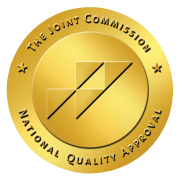Trauma Treatment Center in Orange County
Trust the Best Trauma Treatment Center in Orange County
In life, sudden or repeated events can occur that can create mental disorders for some people. Exposure to these experiences can cause thoughts, feelings, and emotions that significantly affect an individual’s normalcy.
These conditions are known as trauma and stress-related disorders. If a person suffers from these diseases, the wisest thing to do is to seek specialized help at a top trauma treatment center in Orange County, such as Lido Wellness Center. You should learn more about these conditions so that you will know if you or a loved one requires PTSD and trauma treatment.
What Are Trauma and Stress-Related Disorders?
They are negative psychological reactions that occur in an individual after exposure to a particular event. The event may be sudden, such as a death, accident, or natural disaster, or repeated, such as physical abuse or violence. In the case of the latter, the traumatized person is not necessarily the victim, but witnessing these violent acts causes trauma that severely affects their life.
What is the Cause of the Disorder?
Actually, the event itself does not cause trauma, since two people can witness or live the same situation and one can be affected and the other not. The psychological condition is generated by the individual’s perception of the event, which is usually one of helplessness or vulnerability. The more unprotected or vulnerable the person feels, the greater the impact, and therefore the more severe the psychological condition.
Types of Trauma and Stress-Related Disorders
- Post-traumatic stress disorder (PTSD): an event can be frightening, causing the feeling that the world is not safe. The person may relive it in dreams and nightmares, or when experiencing similar situations. Requires a PTSD treatment program.
- Adjustment disorders: the person reacts emotionally or behaviorally to a life-changing event, such as a move, death, or separation. Causes high levels of stress or depression, and needs support from one of the top trauma and PTSD treatment centers.
- Acute stress disorder (ASD): occurs within the first four weeks of exposure to a traumatic event and can cause anxiety, intense fear, helplessness, or re-experiencing the event.
- Reactive attachment disorder (RAD): occurs when an infant or child does not develop stable attachments to primary caregivers. The child has trouble controlling their emotions and is extremely fearful of their parents or guardians.
- Disinhibited social engagement disorder: occurs in children who have difficulty forming emotional attachments with others. They are outgoing and friendly, but the interpersonal relationships they form are short-lived.
Symptoms of Trauma
Different symptoms may vary from one individual to another, but in general, the person tends to be unfocused, has trouble sleeping or has nightmares, suffers from depression, has feelings of guilt, has drastic changes of mood, has anxiety, panic, stress, hypersensitivity, exhaustion, or muscle tension, among others.
Several types of therapy can help treat trauma disorders, including:
Cognitive-behavioral therapy (CBT): This therapy helps individuals identify and change negative thought patterns and behaviors that may contribute to their symptoms.
Exposure therapy involves helping individuals confront and work through their traumatic memories in a safe and controlled environment.
Eye movement desensitization and reprocessing (EMDR): EMDR is a therapy that uses eye movements, or other forms of bilateral stimulation, to help individuals process and resolve their traumatic memories.
Dialectical behavior therapy (DBT): DBT is a therapy that teaches individuals skills to help them regulate their emotions, thoughts, and behaviors and manage stress more effectively.
Trauma-focused cognitive-behavioral therapy (TF-CBT): TF-CB helps people who have experienced trauma. It combines elements of CBT with other interventions to help individuals process their traumatic experiences and develop coping skills.
It’s important to note that different types of therapy may be more or less effective for different individuals, and it may take some trial and error to find the right approach for you. Working with a trained mental health professional with experience in treating trauma disorders is also essential.
Count on LIDO Wellness Trauma Center
If you’re looking for the leading trauma & PTSD treatment in Orange County, you’re in the right place. At Lido Wellness Center you will find the best team of professionals, the best trauma treatment facilities, and the best therapeutic methodologies to successfully overcome any of these conditions. Call us to learn more about our mental health treatment services.




